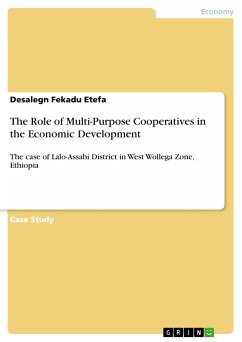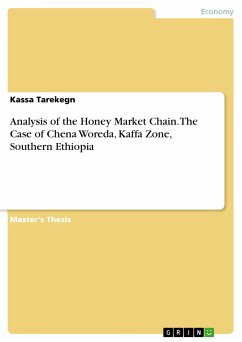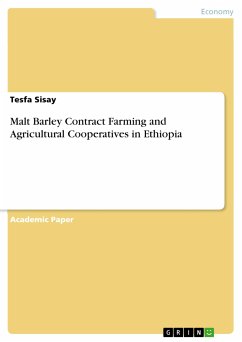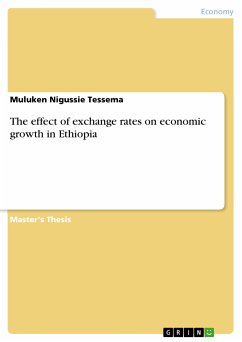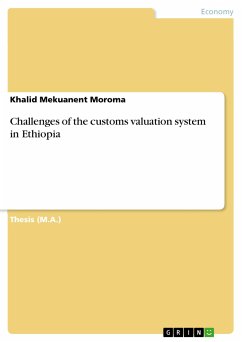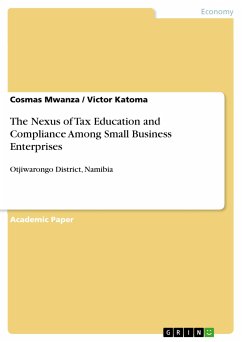Case Study from the year 2019 in the subject Business economics - General, grade: -, , course: Business, language: English, abstract: The objective of this study is to show the overall development trends and the challenges encountering the multi-purpose cooperatives (MPCs). To do so, research methodology employed was descriptive, which involved both qualitative and quantitative methods. Data were collected from both primary and secondary sources. Data were collected from the sample through cross-sectional survey from 210 respondents. Besides, 16 key informants and three FGDs were considered in the assessment. The instruments used were questionnaires, FGDs, in depth interviews, observation and document review. Both probability and non-probability sampling techniques were applied. Data analyses were done using descriptive statistics. The result of the study shows that the average rate of growth of members in sample MPCs is 19% as calculated from 2016-2018 and 79.3% from their formation period. The capital of the sample MPCs increased from 305,081 to 9.3 million and their profit was nearly 1.5 million ETB. Of the multifaceted services they provide, marketing agricultural inputs accounts for the great proportions. In general, the sample MPCs are contributing somewhat to the economic development of the MPCs. However, their performance is not as expected due to major problems identified: lack of professional managers, devoted management committees, limited capital base; weak horizontal and vertical linkages, low members' participation, insufficient dividend, lack of diversified activities; limited awareness, inadequate infrastructure, low stakeholders' participation, lack of adequate credit facilities and other necessary technical supports are among hitches to be tackled.
Dieser Download kann aus rechtlichen Gründen nur mit Rechnungsadresse in A, B, BG, CY, CZ, D, DK, EW, E, FIN, F, GR, HR, H, IRL, I, LT, L, LR, M, NL, PL, P, R, S, SLO, SK ausgeliefert werden.

